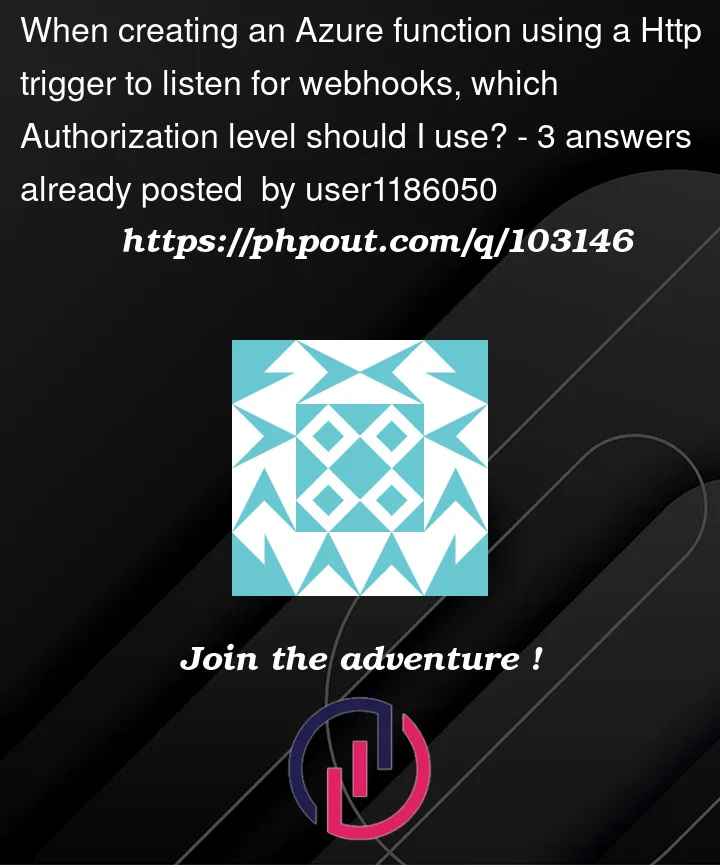What authorization level do I need for an Azure function that listens for webhooks?
Reading through the MS documentation I’m a little confused on wether or not I need to define an Authorization level other than Anonymous?
I see there is (admin, anonymous, function, system, user).
My Http trigger is going to read webhooks coming in from Stripe.com.
Here is my trigger:
public async Task<IActionResult> Run(
[HttpTrigger(AuthorizationLevel.Anonymous, "get", "post", Route = null)] HttpRequest req, ILogger log)
{
var json = await new StreamReader(req.Body).ReadToEndAsync();
var platformWebhookSecret = Environment.GetEnvironmentVariable("PlatformWebhookSecret");
Event stripeEvent = EventUtility.ConstructEvent(json, req.Headers["Stripe-Signature"], platformWebhookSecret);
// perform work...
}




3
Answers
As you can see you can use the below 3 Authorization levels while creating a azure function:
I have followed Microsoft_document and it says,
System is used by Azure Functions Internally(backend), It is not for writing/developing azure functions.
Whereas User is used when you want to give specific access to a particular user to the particular application. We need to give User Specific API key.
I would suggest you to use Anonymous as you are using webhooks (requests may come from third party too) otherwise you can also use Functions and if you are using that you need to give Function API key.
According to the Stripe docs you need an anonymous endpoint for the webhook:
That means you only need to use
AuthorizationLevel.Anonymousfor your function.Do mind that this allows others to send requests to your function, they might even mimic real Stripe events so be sure to defend against that by validating the request data against Stripe:
Using
Anonymouslevel will let anyone who knows url to your function call it with whatever data they please. Now, you can prevent this exact scenario by asking Stripe to sign its requests which you can validate for integrity.Having function level authentication level will add an extra layer of security and let only Stripe call your functions. One downside is that any time you regenerate your function key, you will need to update it in your Stripe configuration too.